Revered musician and film composer Ennio Morricone has sadly passed away at the age of 91. It's impossible to overstate the impact Morricone had on cinema and wider pop culture, from the inventive rhythms of his Dollars trilogy to his sumptuously beautiful melodies from the likes of The Mission.
For many people, Morricone's music transcended the medium of film to become its own astonishingly gorgeous entity. Tributes have been pouring in from across the spectrum, including this one from Hans Zimmer, a self-confessed fan of Morricone's music.
"His music was always outstanding and done with great emotional fortitude and great intellectual thought," Zimmer stated.
So, on this saddest of days, we've attempted to recap some of Morricone's most profound achievements. It's not an easy task as the composer was alleged to have written in excess of 400 film scores. Nevertheless, the following should give a flavour of this extraordinary individual whose presence will be sorely missed.
1. The Good, the Bad and the Ugly (1966)
Director Sergio Leone turned the conventions of the Western on their head with his Dollars trilogy. And old school-friend Ennio Morricone went hand in hand with him. With their intentionally operatic use of extreme close-ups and ultra-widescreen landscape vistas, Leone's movies immediately made their mark on cinema history. Further cementing the trilogy's iconic status (including the cigar-chomping Man With No Name, played by Clint Eastwood) was Morricone's soaring music. It reached its apex in The Good, the Bad and the Ugly, which immediately arrests attention with its jaw harp/mariachi trumpet/grunting vocal opening theme. But the standout piece is soprano Edda Dell'Orso's breathtaking work during 'The Ecstasy of Gold' – never has greed sounded so good.
2. Once Upon a Time in the West (1968)
If the Dollars trilogy sent Leone and Morricone on a journey of experimental discovery, Once Upon a Time in the West was arguably the maturation of their style. For this film, Morricone's music strikes a somewhat more melancholy, strained note, as he brilliantly depicts the birth of contemporary America as one bathed in equal parts chaos and optimism. The presence of Edda Dell'Orso's voice is again critical, especially during 'Jill's Theme', which soars as Jill (Claudia Cardinale) walks from the train station into the town. This gorgeous beauty sits alongside the harsher, more mechanised tone for Henry Fonda's psychotic Frank, the clever use of harmonica linking him with the fate of Charles Bronson's mystery man. A masterpiece among masterpieces.
3. Novecento (1976)
Bernando Bertolluci's sprawling drama is a four-hour trek through Italian provincial politics and the ever-changing friendship between two men. Gerard Depardieu and Robert De Niro play a landowner and a peasant, respectively, who are witness to the fascist/communist conflict at the turn of the 20th century. For a film that flip flops between a sense of the pastoral and hideous violence, it makes sense that Morricone's score follows suit. His oboe/vocal-led main theme is one of his most beautiful, an inspiring call to arms that still manages to craft a sense of intimacy. Sitting alongside that are astringent, uncomfortable string arrangements that depict how the political landscape was changing against the will of the people.
4. Days of Heaven (1978)
Terrence Malick's drama is set amidst the undulating plains of the American midwest and is regarded as one of the most beautiful films ever made. Dispensing with a traditional narrative, this lyrical ode to rural life explores how itinerant Chicago workers seek out a new life in the wheatfields. It's therefore little surprise that Ennio Morricone conjured one of his most heart-stoppingly lovely works, which centres around the main theme 'The Harvest'. Possessed of graceful beauty, it's also underpinned with wise melancholy, perhaps anticipating the inevitable downfall of the characters. A later track like 'Happiness' puts the flute front and centre to restore a delightful sense of whimsy, but as the land is invaded by mechanisation, so too does the emphasis of Morricone's music change, low-register piano and strings investing a darker tone.
5. Once Upon a Time in America (1984)
Morricone's final score for his old friend Sergio Leone is another towering achievement. Remarkably, it wasn't nominated for an Oscar – rumours allege that it was favoured but the correct paperwork never got filed. No matter – Morricone's sublime work transcends any crass talk of awards. The movie is a continuation of the themes of the earlier Once Upon a Time in the West, exploring crime-ridden, early 20th century New York as seen through the eyes of two friends. Robert De Niro and James Woods are the leads, and memory is a key theme in the drama. Morricone's wistfully lovely score alternates the famous heartache of 'Deborah's Theme' with speakeasy-appropriate jazz selections, as if dredging up memories from America's distant past.
6. The Mission (1986)
Morricone's best score? It's not easy to pick from over 400 of them, but for many people, The Mission is the composer's apotheosis. The composer's soaring string elegies and heavenly choral arrangements were surely never put to better use than here. Roland Joffe's story of Jesuit missionaries in Latin America inspired the composer to go above and beyond his usual standard of excellence. Indeed, upon listening to The Mission, one senses Morricone touching something truly divine. Yet such is Morricone's brilliance that he also finds emphasis for the intimate moments, the tender notes of 'Gabriel's Oboe' being a famous example. The composer was said to have been inspired by actor Jeremy Irons' finger placements, and the end result is one of the most famous film themes of all time.
7. Casualties of War (1989)
Brian De Palma's shattering Vietnam War drama is inspired by a true event: the kidnapping, assault and murder of a young Vietnamese girl by American troops. Michael J. Fox and Sean Penn give impressively anguished performances, but, as ever, it's Morricone's music that tips the film into greatness. Given the subject matter, Morricone (who earlier worked with De Palma on The Untouchables) conjures one of his most heartbreaking themes, a choral/string elegy for the loss of innocence felt by the American soldiers. It's also clearly an ode to the damage done to Vietnam itself, assisted by the presence of location-appropriate pan pipes. Golden Globe-nominated in 1989, Casualties of War is an overlooked Morricone classic that deserves more attention.
8. Cinema Paradiso (1989)
Many of Morricone's fans cite Cinema Paradiso as his most irresistibly romantic and nostalgic score. Director Giuseppe Tornatore won the hearts of global audiences with his story of a man remembering his youth, primarily the life lessons from his local village cinema projectionist. That material would be catnip to any film composer, but Morricone isn't just any film composer. He has a seemingly bottomless well for ravishingly beautiful melody, and Cinema Paradiso has at least two of them. Both the 'Main Theme' and 'Love Theme' are instrumentally linked, with undulating piano and tender strings crafting a sense of melancholy reflection in the mind of our central character,
9. Nostromo (1996)
With over 400 credits to his name, it's no surprise that Morricone worked on some pretty obscure projects. This BBC TV adaptation of Joseph Conrad's novel Heart of Darkness is a case in point. There was an excellent cast involved, Albert Finney and Brian Dennehy included, but Morricone's music is easily the most memorable aspect. As ever, he looked beyond the boundaries of the image to convey a profound sense of spiritual wonder, again assisted by the majestic vocals of Edda Dell'Orso. In a career studded with highlights, the gasp-inducing beauty of 'The Silver of the Mine' deserves special mention.
10. Padre Pio (2000)
Still, if we're talking obscure, this Italian made-for-TV movie fits the bill. The drama recaps the life of Roman Catholic friar turned saint Padre Pio, and was the jumping-off point for an especially breathtaking Morricone score. The composer was clearly inspired by the religious underpinnings of the story, and with its focus on an Italian figure, the movie must have also struck a personal chord. Morricone's main theme simply soars with its timpani, brass and choral arrangements, demonstrating how the composer was capable of conjuring astonishing music for even the most obscure of projects.
11. Fateless (2005)
Not just the finest melodist film music has ever known, Morricone was also a restless experimentalist. The Dollars trilogy is perhaps the best example, and these tendencies stayed with Morricone during the entirety of his extraordinary career. For this harrowing Hungarian World War II drama, detailing the ordeal of a young boy sent to the Auschwitz and Buchenwald concentration camps, Morricone sought to suggest something beyond the edges of the frame. To that end, he deployed the yearning sound of a pipe organ, which indicates a myriad things, from the innocence of the central figure to the nobility of the human spirit.
What's your favourite Ennio Morricone score? Let us know @Cineworld.
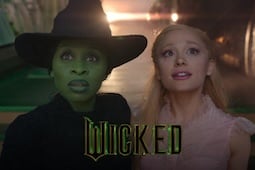
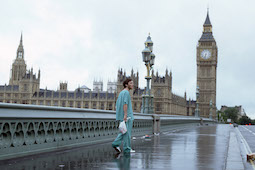
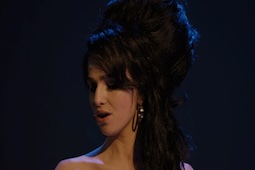
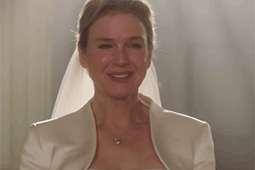
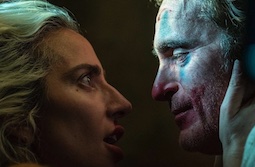
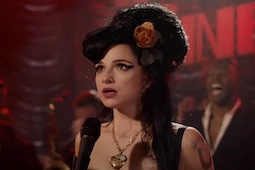

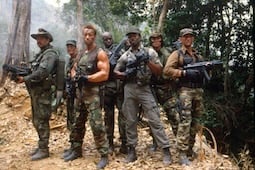

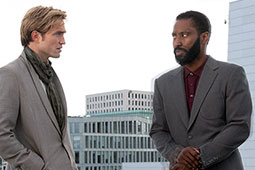



.jpg)
.png)



